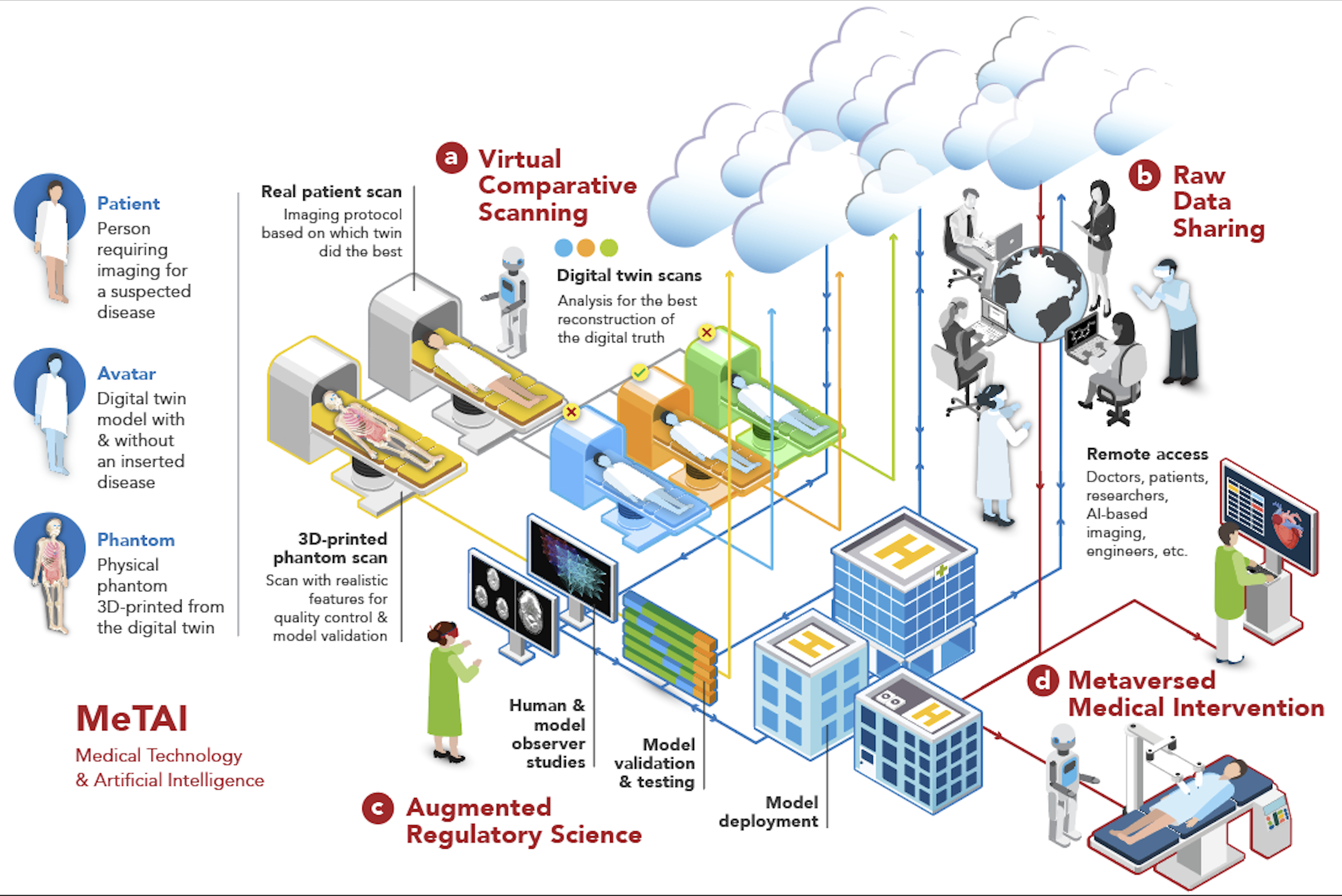In an article published by Nature Machine Intelligence, Klaus Mueller along with several researchers made the case that integrating physical and virtual realities (metaverse) could impact clinical practice and human health.
Published November 15, 2022, Development of Metaverse for Intelligent Healthcare was co-authored by researchers from academia, industry, healthcare, and government who present the case for the use of metaverse in the medical field.

The article discusses how the recent creation of the metaverse, and its success across social media and entertainment platforms, could also find its way into the medical field. Metaverse could be able to complete a series of diagnostic practices and other treatments including virtual comparative scanning and imagery, medical intervention, and raw data sharing. In these ways, doctors and healthcare providers would be able to improve not only the quality of their care but also their accessibility, cost, and satisfaction for their patients. The now published article addresses some of the limitations of AI medicine, specifically its difficulty in diagnosing pathological patient images including cancerous tumors and cardiac defects.
“One bad diagnosis by a robot is a case of medical misconduct that will likely have a much larger impact and loss of trust than a bad diagnosis made by a radiologist at a local hospital,” explains Mueller. “And so, we want to make sure that AI-based devices can match or even exceed the capability of human doctors before they get deployed on human patients.”
Dr. Mueller was a co-author on the pioneering paper which included the following authors:
- Ge Wang, Department of Biomedical Engineering, Rensselaer Polytechnic Institute (Lead Author),
- Andreu Badal, 2 Division of Imaging, Diagnostics and Software Reliability, OSEL, CDRH, US Food and Drug Administration,
- Xun Jia of the Department of Radiation Oncology and Molecular Radiation Sciences at Johns Hopkins University,
- Jonathan S. Maltz, Molecular Imaging and Computed Tomography, GE Healthcare,
- Kyle J. Myers, Puente Solutions,
- Chuang Niu, Department of Biomedical Engineering, Rensselaer Polytechnic Institute,
- Michael Vannier, University of Chicago Medical Center,
- Pingkun Yan, Department of Biomedical Engineering, Rensselaer Polytechnic Institute,
- Zhou Yu, Canon Medical Research USA, and
- Rongping Zeng of Division of Imaging, Diagnostics and Software Reliability, OSEL, CDRH for the US Food and Drug Administration
Nature Machine Intelligence is a monthly peer-reviewed journal that publishes high-quality research submitted by computer scientists and engineers. It covers a wide range of topics including AI, cognitive science, robotics and their interactions, machine and deep learning, symbolic reasoning, computer vision, and multi-agent systems. They also analyze and discuss their significant contributions to different industries and society.
-Alissa Pabon
